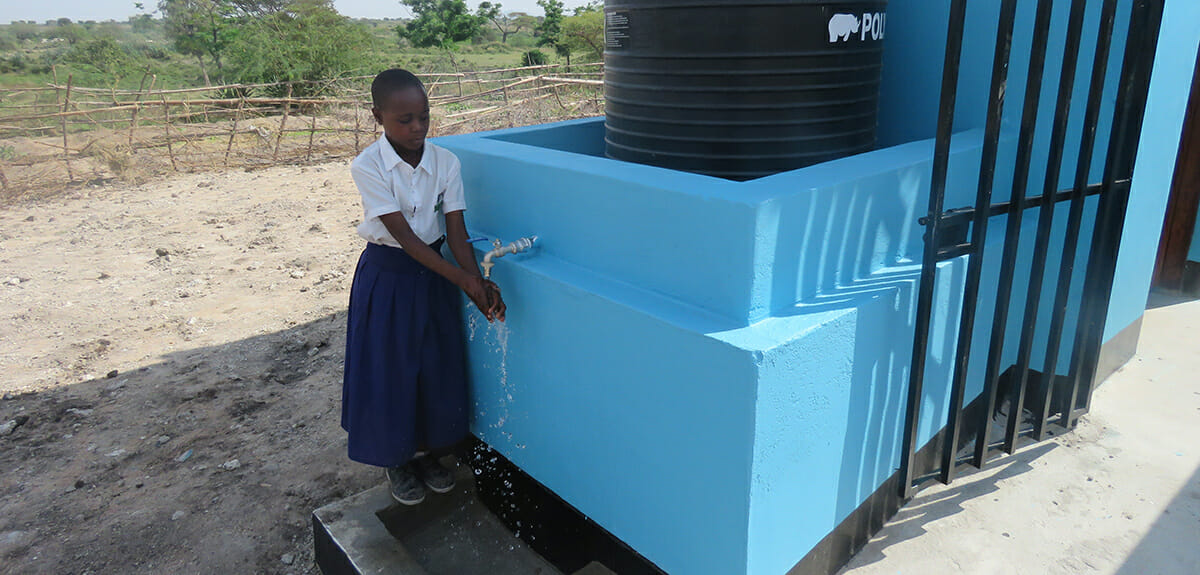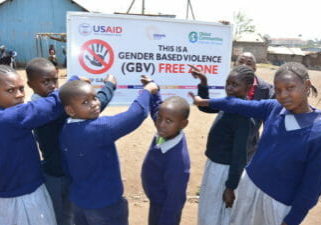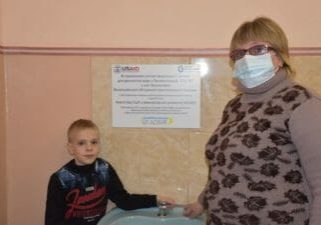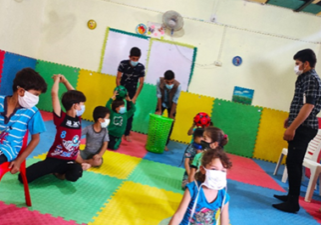News > Blog
School WASH Protects Students and Promotes Healthy Learning
Published 03/24/2021 by globalcommunities

Almost half of schools worldwide have no hand-washing facilities and around one-third of schools do not have safe water supplies or adequate sanitation (WHO/Unicef 2020). Without access to clean water at schools, student health is at risk and they lose valuable learning time by having to walk long distances to collect water, often from unprotected and potentially contaminated sources.
Since 2001, PCI, a Global Communities Partner, has partnered with the U.S. Department of Agriculture to implement 16 McGovern-Dole International Food for Education and Child Nutrition (McGovern-Dole) and 3 Local and Regional Food Aid Procurement programs. Combined, they have reached over 1 million students with important water, sanitation and hygiene (WASH) improvements as well as nutritious school meals and literacy education. PCI currently implements three McGovern-Dole projects in Tanzania, Guatemala and Nicaragua.
“My children had been missing afternoon school lessons as they were required to support their mother to fetch water for our domestic use,” said Robert Manyama, a father of students attending one of the program schools in Tanzania’s Mara Region. “Now, they do not need to walk long distances for water. Thanks to PCI for their water systems project.”
WASH activities in PCI’s McGovern-Dole projects aim to improve knowledge and increase use of health and hygiene practices, increase access to clean water and sanitation services, and strengthen the capacity of WASH committees and community members to locally own, manage and sustain access to WASH services.

Students demonstrate proper hand-washing at a station constructed under PCI’s USDA McGovern-Dole project in Guatemala.
A total of 242,690 students benefit from 238 wells or water stations/systems that have been rehabilitated or built through PCI’s current projects. In addition, 1,078 schools now use an improved water source.
“I work with preschool and first grade. Previously, we did not have a hand-washing station, but we knew that it is a very important practice,” said Alfredo Martín Francisco Joaquín, a teacher at Gelna Primary School in Guatemala. “Now, we have one and the children wash their hands properly. Today, it is more important according to the suggestions of the Ministry of Health.”
Given the current pandemic, PCI’s WASH interventions are especially important in promoting COVID-19 prevention practices and supporting local governments and schools’ readiness to safely reopen schools in alignment with safety protocols. For example, in Guatemala, PCI trained 4,333 students and 1,741 parents in COVID-19 preventative measures such as mask wearing, social distancing and hand-washing through audiovisual materials and messages shared via telephone and WhatsApp. Program staff also leveraged parent-teacher associations to spread COVID-19 awareness messages and lead health campaigns in their communities.
In Nicaragua, where schools have remained open during the pandemic, PCI has supported the installation of 2,174 low-cost Tippy Taps to promote hand-washing. Staff with the McGovern-Dole project have also leveraged Women Empowered (WE) groups to promote hygienic practices among families.
“If we have water, we have health,” said Andrea Blandón, a WE group member from Las Lomas in the municipality of Jinotega. “Water is useful for everything we do in our homes. If we don’t have water, we are in trouble.”
For a comprehensive look at how PCI’s USDA McGovern-Dole projects improve student access to clean water and increase the use of proper health and hygiene practices, download a copy of our School WASH program overview.






